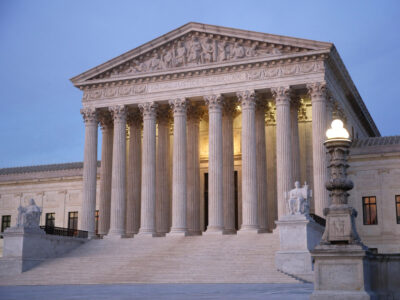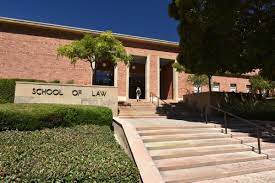The Roberts Court and the End of the Rule of Law
The Great Enablers
Like most law school graduates, I believe in the rule of law and its central role in preserving and extending democracy.
Sadly, despite protestations to the contrary, the Roberts Court has moved the country away from that concept, ignoring legal precedent, making up doctrines not referenced in the Constitution, abusing the shadow docket, turning the notion of status quo for preliminary injunctions on its head, and, most decidedly, casting aside a central tenet of the Constitution, the Federalist Papers, and the Founding Fathers that our government, with all its check and balances, in direct response to the rule of England and King George III, must at virtually all cost, preclude monarchs and autocracy.
At so many junctures, the Roberts Court could have constrained the obvious excesses of the Trump Administration, the unwarranted firings of civil service employees, the reversal of congressional spending directives, the deportations without due process, the decimation of entire programs without congressional action, and the deployment of national guard to American cities, to name but a few. Instead, in each instance, almost invariably on the shadow or emergency docket, without reasoning, the Roberts Court has sided with unrestrained power, denying injunctions that, under traditional and well-accepted judicial doctrines, would have left in place the status quo pending the outcome of full judicial process.
Another basic tenet – that no man is above the law – was eviscerated by the Roberts Court in Trump v. United States, 603 U.S. 593 (2024), granting nearly complete immunity to the President, shielding him from consequence, but not precluding his own litigation against news media and perceived enemies, thereby unleashing unconstrained conduct without legal consequence.
Plenty has been written about the Roberts Court’s cavalier disregard of Supreme Court precedent (of which Dobbs is but one example from many), the massive overuse of the shadow docket without oral argument or written decisions, the willingness of the Court to grant emergency review at the request of the Trump Administration when a full lower court process would provide far greater clarity and fair review, the “originalist” interpretations of Justices acting as dilettante historians, and the creation from whole cloth of new doctrines such as the major question doctrine of West Virginia v. EPA. But, for me, the most telling disregard for the Constitution and the role of the Supreme Court is the relentless approval of expanding and unitary presidential power, akin to the autocracy that our Founding Fathers so clearly despised. Even dilettante historians must acknowledge the fear and loathing the Founders had for autocratic rule.
A few examples:
“When the people fear the government, that’s tyranny; when the government fears the people, that’s freedom.” Thomas Jefferson
Check out Federalist 10, 47, and 67 (Madison and Jefferson)
“It is important, likewise, that the habits of thinking in a free Country should inspire caution in those entrusted with its administration, to confine themselves within their respective Constitutional spheres; avoiding in the exercise of the Powers of one department to encroach upon another. The spirit of encroachment tends to consolidate the powers of all the departments in one, and thus to create whatever the form of government, a real despotism. A just estimate of that love of power, and proneness to abuse it, which predominates in the human heart is sufficient to satisfy us of the truth of this position.” George Washington
Even more than the Trump Administration, it is the Roberts Court that has placed the country on the brink of autocracy. The separation of powers is bedrock in the Constitution. The failure to constrain presidential consolidation of power is the legacy of the Roberts Court, heading towards creation of “a real despotism.”
To underscore the point of how far the Roberts Court has gone in this direction, ask yourself, do you think that the Court will find that Trump exceeded his power to institute tariffs, even if the statute doesn’t give him that authority, even in the face of the major questions doctrine? Are you sure that the Supreme Court will find that the President can’t waive or redefine birthright citizenship?
For months, like many, I have hoped that there might be some semblance of limit, of a Supreme Court that would affirm constitutional roles for the three branches, of a recognition of the threat of abuse of presidential power. But in the most important cases, in the most important moments, the Roberts Court has not just abdicated its constitutional role but has sided with autocracy to the detriment of democracy and anathema to the Founding Fathers and the Constitution itself.
It’s time, therefore, that we call out the Supreme Court’s attack on the rule of law.
What Is To Be Done?
Protest, voting, organizing, all come to mind, but there are also longer-term legal remedies. The Roberts Court is the Supreme Court that we have, but it will not always be the case. First, this Court, as noted, feels unrestrained by legal precedent, so when the Roberts majority has left the building, Roberts Court decisions should be given no precedential value. Second, it’s time for Supreme Court term limits of, say, 14 years on staggered terms. That might even garner bipartisan support. One can dream.
It is hard to watch as the Trump Administration dismantles 60 years of progress on environmental protection and forty years of at least forward momentum on climate. But it’s even more devastating to see the Roberts Court turn its back on the most basic of constitutional principles.
We cannot be silent.
Reader Comments
5 Replies to “The Roberts Court and the End of the Rule of Law”
Comments are closed.







yup
Well said
Words matter. I think it is more accurate to say that it is a hiatus in the rule of law rather than its end. At least I hope so.
I think the Roberts Court, at least John Roberts himself, has a strong desire not to go on record for a lot of this administration’s requests. That’s why they keep accepting emergency review, and offering no reason when they say the lower court got it wrong.
If they really wanted to be on record, they’d either reject the appeal leaving the lower court decisions in place, or hear arguments to offer a full binding decision. Repeatedly, the court is trying to punt decisions to lower courts through the emergency docket.
how about impeachment of each justice who voted for Trump? (together with impeachment of Trump and Vance and new judicial appointments to refill the court)